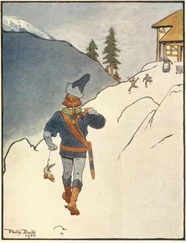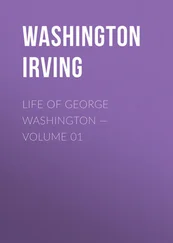Pelham Wodehouse - Not George Washington — an Autobiographical Novel
Здесь есть возможность читать онлайн «Pelham Wodehouse - Not George Washington — an Autobiographical Novel» весь текст электронной книги совершенно бесплатно (целиком полную версию без сокращений). В некоторых случаях можно слушать аудио, скачать через торрент в формате fb2 и присутствует краткое содержание. Жанр: Классическая проза, Юмористическая проза, на английском языке. Описание произведения, (предисловие) а так же отзывы посетителей доступны на портале библиотеки ЛибКат.
- Название:Not George Washington — an Autobiographical Novel
- Автор:
- Жанр:
- Год:неизвестен
- ISBN:нет данных
- Рейтинг книги:4 / 5. Голосов: 1
-
Избранное:Добавить в избранное
- Отзывы:
-
Ваша оценка:
- 80
- 1
- 2
- 3
- 4
- 5
Not George Washington — an Autobiographical Novel: краткое содержание, описание и аннотация
Предлагаем к чтению аннотацию, описание, краткое содержание или предисловие (зависит от того, что написал сам автор книги «Not George Washington — an Autobiographical Novel»). Если вы не нашли необходимую информацию о книге — напишите в комментариях, мы постараемся отыскать её.
Not George Washington — an Autobiographical Novel — читать онлайн бесплатно полную книгу (весь текст) целиком
Ниже представлен текст книги, разбитый по страницам. Система сохранения места последней прочитанной страницы, позволяет с удобством читать онлайн бесплатно книгу «Not George Washington — an Autobiographical Novel», без необходимости каждый раз заново искать на чём Вы остановились. Поставьте закладку, и сможете в любой момент перейти на страницу, на которой закончили чтение.
Интервал:
Закладка:
In the intervals of articles I wrote short stories, again for the same three papers. As before, I studied these papers carefully to see what they wanted; then worked out a mechanical plot, invariably with a quarrel in the first part, an accident, and a rescue in the middle, and a reconciliation at the end—told it in a style that makes me hot all over when I think of it, and sent it up, enclosing a stamped addressed envelope in case of rejection. A very useful precaution, as it always turned out.
It was the little knowledge to which I have referred above which kept my walls so thickly covered with rejection forms. I was in precisely the same condition as a man who has been taught the rudiments of boxing. I knew just enough to hamper me, and not enough to do me any good. If I had simply blundered straight at my work and written just what occurred to me in my own style, I should have done much better. I have a sense of humour. I deliberately stifled it. For it I substituted a grisly kind of playfulness. My hero called my heroine "little woman," and the concluding passage where he kissed her was written in a sly, roguish vein, for which I suppose I shall have to atone in the next world. Only the editor of the Colney Hatch Argus could have accepted work like mine. Yet I toiled on.
It was about the middle of my third week at No. 93A that I definitely decided to throw over my authorities, and work by the light of my own intelligence.
Nearly all my authorities had been very severe on the practice of verse-writing. It was, they asserted, what all young beginners tried to do, and it was the one thing editors would never look at. In the first ardour of my revolt I determined to do a set of verses.
It happened that the weather had been very bad for the last few days. After a month and a half of sunshine the rain had suddenly begun to fall. I took this as my topic. It was raining at the time. I wrote a satirical poem, full of quaint rhymes.
I had always had rather a turn for serious verse. It struck me that the rain might be treated poetically as well as satirically. That night I sent off two sets of verses to a daily and an evening paper. Next day both were in print, with my initials to them.
I began to see light.
"Verse is the thing," I said. "I will reorganise my campaign. First the skirmishers, then the real attack. I will peg along with verses till somebody begins to take my stories and articles."
I felt easier in my mind than I had felt for some time. A story came back by the nine o'clock post from a monthly magazine (to which I had sent it from mere bravado), but the thing did not depress me. I got out my glue-pot and began to fasten the rejection form to the wall, whistling a lively air as I did so.
While I was engaged in this occupation there was a testy rap at the door, and Mrs. Driver appeared. She eyed my manoeuvres with the rejection form with a severe frown. After a preliminary sniff she embarked upon a rapid lecture on what she called my irregular and untidy habits. I had turned her second-floor back, she declared, into a pig-stye.
"Sech a litter," she said.
"But," I protested, "this is a Bohemian house, is it not?"
She appeared so shocked—indeed, so infuriated, that I dared not give her time to answer.
"The gentleman below, he's not very tidy," I added diplomatically.
"Wot gent below?" said Mrs. Driver.
I reminded her of the night of my arrival.
"Oh, ' im ," she said, shaken. "Well, 'e's not come back."
"Mrs. Driver," I said sternly, "you said he'd gone out for a stroll. I refuse to believe that any man would stroll for three weeks."
"So I did say it," was the defiant reply. "I said it so as you shouldn't be put off coming. You looked a steady young feller, and I wanted a let. Wish I'd told you the truth, if it 'ad a-stopped you."
"What is the truth?"
"'E was a wrong 'un, 'e wos. Writing begging letters to parties as was a bit soft, that wos ' is little gime. But 'e wos a bit too clever one day, and the coppers got 'im. Now you know!"
Mrs. Driver paused after this outburst, and allowed her eye to wander slowly and ominously round my walls.
I was deeply moved. My one link with Bohemia had turned out a fraud.
Mrs. Driver's voice roused me from my meditations.
"I must arst you to be good enough, if you please, kindly to remove those there bits of paper."
She pointed to the rejection forms.
I hesitated. I felt that it was a thing that ought to be broken gently.
"The fact is, Mrs. Driver," I said, "and no one can regret it more deeply than I do—the fact is, they're stuck on with glue."
Two minutes later I had received my marching orders, and the room was still echoing with the slam of the door as it closed behind the indignant form of my landlady.
CHAPTER 3
THE ORB (James Orlebar Cloyster's narrative continued)
The problem of lodgings in London is an easy one to a man with an adequate supply of money in his pocket. The only difficulty is to select the most suitable, to single out from the eager crowd the ideal landlady.
Evicted from No. 93A, it seemed to me that I had better abandon Bohemia; postpone my connection with that land of lotus-eaters for the moment, while I provided myself with the means of paying rent and buying dinners. Farther down the King's Road there were comfortable rooms to be had for a moderate sum per week. They were prosaic, but inexpensive. I chose Walpole Street. A fairly large bed-sitting room was vacant at No. 23. I took it, and settled down seriously to make my writing pay.
There were advantages in Walpole Street which Manresa Road had lacked. For one thing, there was more air, and it smelt less than the Manresa Road air. Walpole Street is bounded by Burton Court, where the Household Brigade plays cricket, and the breezes from the river come to it without much interruption. There was also more quiet. No. 23 is the last house in the street, and, even when I sat with my window open, the noise of traffic from the King's Road was faint and rather pleasant. It was an excellent spot for a man who meant to work. Except for a certain difficulty in getting my landlady and her daughters out of the room when they came to clear away my meals and talk about the better days they had seen, and a few imbroglios with the eight cats which infested the house, it was the best spot, I think, that I could have chosen.
Living a life ruled by the strictest economy, I gradually forged ahead. Verse, light and serious, continued my long suit. I generally managed to place two of each brand a week; and that meant two guineas, sometimes more. One particularly pleasing thing about this verse-writing was that there was no delay, as there was with my prose. I would write a set of verses for a daily paper after tea, walk to Fleet Street with them at half-past six, thus getting a little exercise; leave them at the office; and I would see them in print in the next morning's issue. Payment was equally prompt. The rule was, Send in your bill before five on Wednesday, and call for payment on Friday at seven. Thus I had always enough money to keep me going during the week.
In addition to verses, I kept turning out a great quantity of prose, fiction, and otherwise, but without much success. The visits of the postmen were the big events of the day at that time. Before I had been in Walpole Street a week I could tell by ear the difference between a rejected manuscript and an ordinary letter. There is a certain solid plop about the fall of the former which not even a long envelope full of proofs can imitate successfully.
I worked extraordinarily hard at that time. All day, sometimes. The thought of Margie waiting in Guernsey kept me writing when I should have done better to have taken a rest. My earnings were small in proportion to my labour. The guineas I made, except from verse, were like the ounce of gold to the ton of ore. I no longer papered the walls with rejection forms; but this was from choice, not from necessity. I had plenty of material, had I cared to use it.
Читать дальшеИнтервал:
Закладка:
Похожие книги на «Not George Washington — an Autobiographical Novel»
Представляем Вашему вниманию похожие книги на «Not George Washington — an Autobiographical Novel» списком для выбора. Мы отобрали схожую по названию и смыслу литературу в надежде предоставить читателям больше вариантов отыскать новые, интересные, ещё непрочитанные произведения.
Обсуждение, отзывы о книге «Not George Washington — an Autobiographical Novel» и просто собственные мнения читателей. Оставьте ваши комментарии, напишите, что Вы думаете о произведении, его смысле или главных героях. Укажите что конкретно понравилось, а что нет, и почему Вы так считаете.



